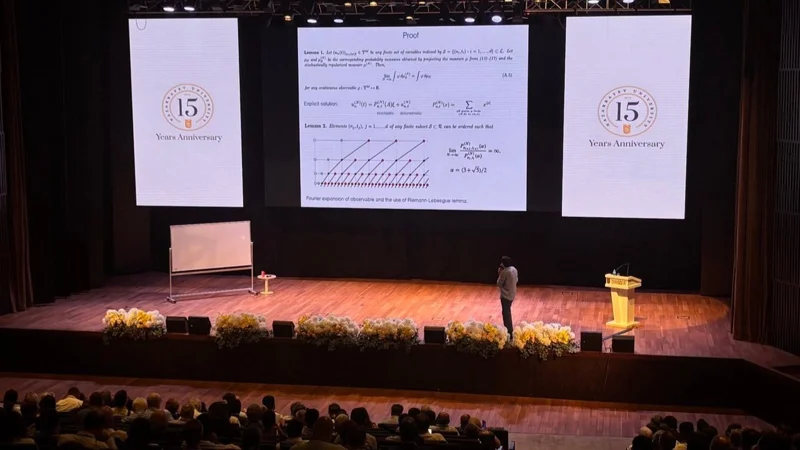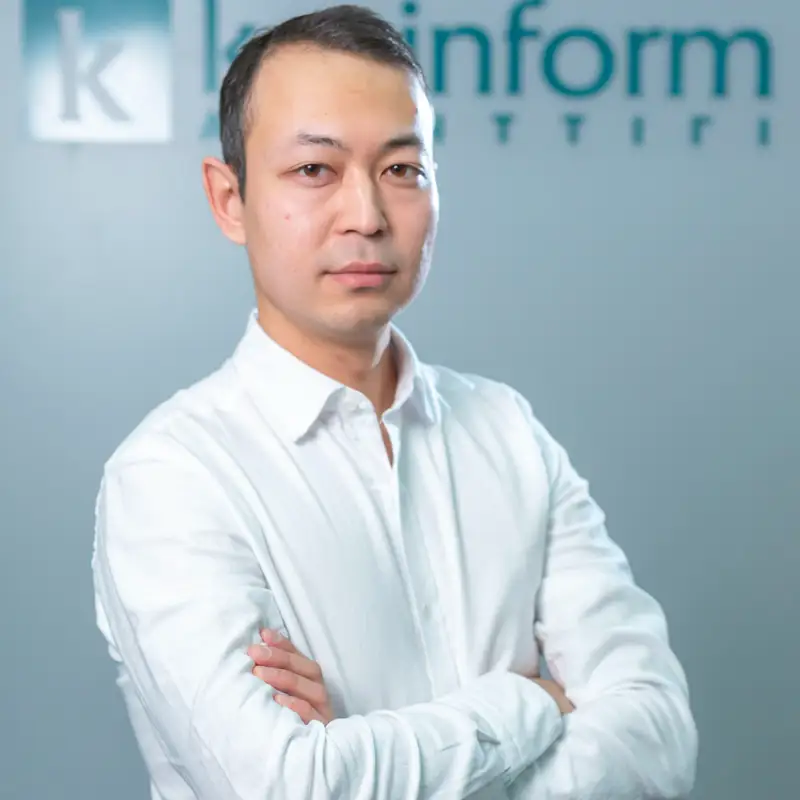Kazakhstan hosts first-ever ‘Oscars’ of Mathematics in CA
On July 21-25, 2025, Kazakhstan's Nazarbayev University is hosting the International Society for Analysis, its Applications and Computation Congress (ISAAC-2025) - a landmark event taking place in Central Asia for the first time, Kazinform News Agency cites the press service of the University.

ISAAC-2025 is the largest mathematics event in the region, further strengthening Kazakhstan’s scientific reputation on the global stage in the field of mathematical research.
The Congress is held every few years under the auspices of the International Society for Analysis, its Applications and Computation (ISAAC), bringing together leading scholars from around the world. Previous congresses took place in the United States, Japan, Germany, Canada, the United Kingdom, and other countries. This year marks the first time the event is being held in Central Asia - a testament to the strength and recognition of Kazakhstan’s mathematical community.
Holding this congress in Kazakhstan, specifically at Nazarbayev University, the region’s premier research university, directly contributes to the growing international standing of Kazakhstani science. While, mathematics is the main focus of the event, modern research is inherently interdisciplinary. The congress agenda spans more than 20 fields, including core mathematical theory, financial mathematics, artificial intelligence, biology, and others. For Kazakhstani researchers, this is a unique opportunity to build professional connections with leading global scientists, paving the way for future joint projects and collaborations, said professor Durvudkhan Suragan, the chair of the 15th Congress.
Over 700 participants from across the globe have gathered in Astana, including Fields Medalist, often referred to as the “Nobel Prize of Mathematics,” Martin Hairer (Switzerland); leading expert in artificial intelligence and distinguished female mathematician Carola-Bibiane Schönlieb (University of Cambridge, UK); world-renowned mathematicians Nader Masmoudi (Courant Institute of Mathematical Sciences, New York University, UAE), Alexei A. Mailybaev (Institute for Pure and Applied Mathematics (IMPA), Brazil), among others.
Martin Hairer highlighted that ISAAC is one of the most prominent congresses dedicated to analysis — a branch of mathematics focused on the equations that describe the world around us. When asked about the potential of AI tools like ChatGPT in solving the “millennium problems” of mathematics, he responded with measured skepticism: “It remains unclear whether artificial intelligence technologies can truly help solve them. I’ve experimented with some of these tools, and frankly, I was not impressed. At this stage, they don’t seem genuinely useful. It’s hard for me to imagine they can generate truly novel ideas — and that’s exactly what’s needed to solve deep, long-standing mathematical problems. It’s not enough to recombine known concepts — what we need is something fundamentally new. So far, I haven’t seen any model capable of that. These systems rely on vast existing knowledge, but they don’t yet create qualitatively new concepts. And that’s precisely what we need.”
As part of the congress, 100 early-career researchers were invited, a third of whom are from Kazakhstan. Many of them received support through the newly established Satpayev Grant, created to foster the development of young scientists and promote international scientific collaboration.
I’m especially pleased to see so many young and new faces here, and I hope everyone takes this opportunity to build new friendships and academic partnerships, said ISAAC President Uwe Kähler.
He went on to announce the recipients of two traditional ISAAC prizes, with the prestigious ISAAC Award going to Elia Bruè (Italy), and the President’s Award for Young ISAACs to Duvan Cardona (Belgium).
Throughout the week, leading mathematicians from around the world will engage in discussions at NU on the latest scientific breakthroughs, innovative methods, and interdisciplinary approaches in mathematics and related fields. The event is supported by the National Academy of Sciences under the President of Kazakhstan and the NU Impact Foundation.
As reported previously, Italy's Marche Polytechnic University unveiled its branch at the Zhansugurov Zhetysu University in Kazakh city Taldykorgan.
